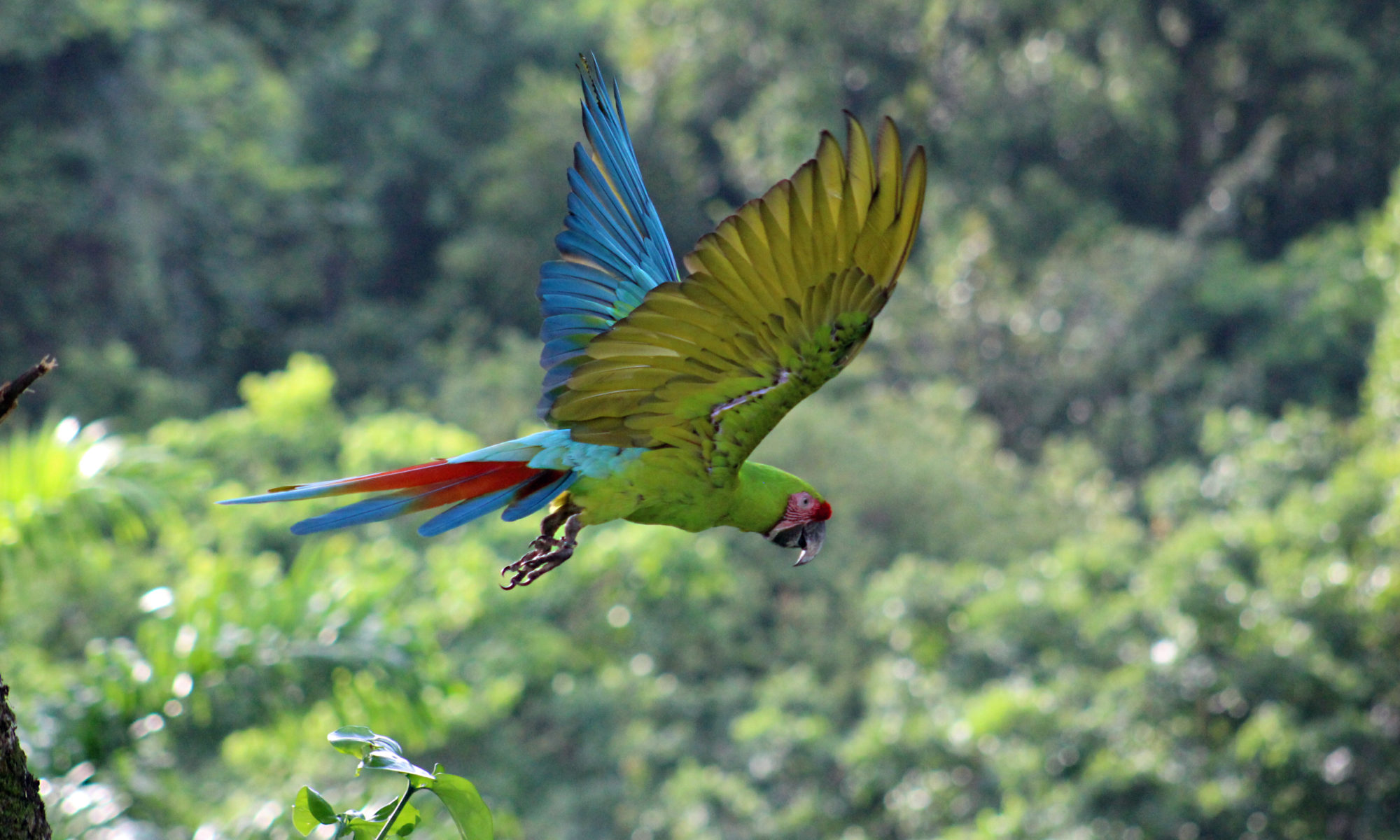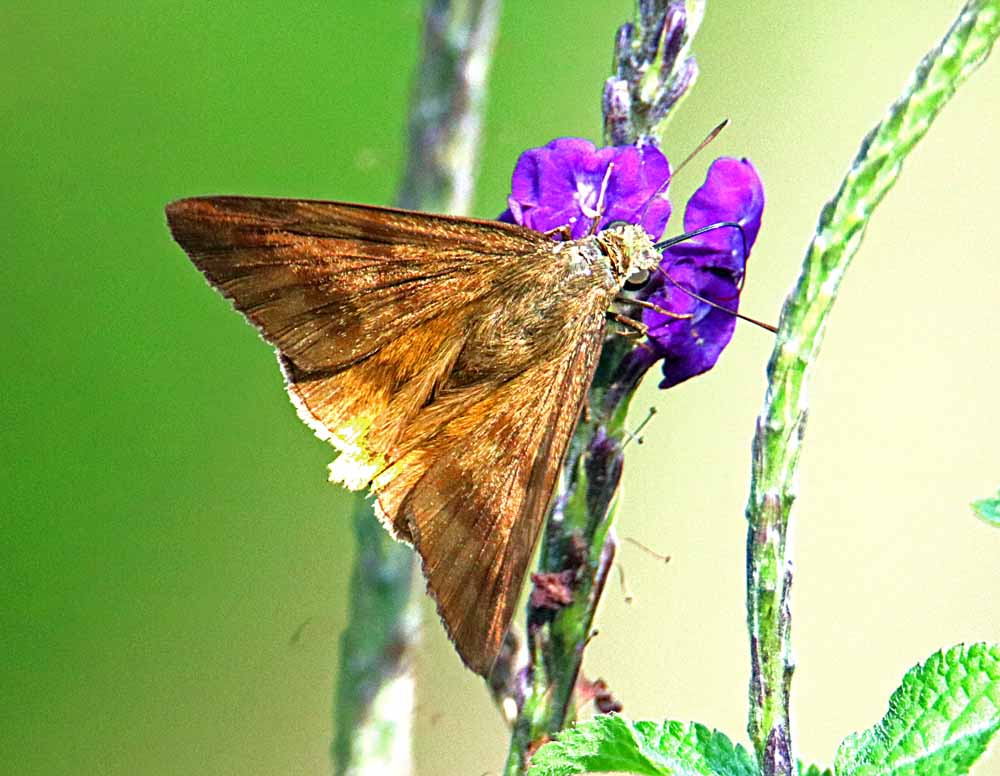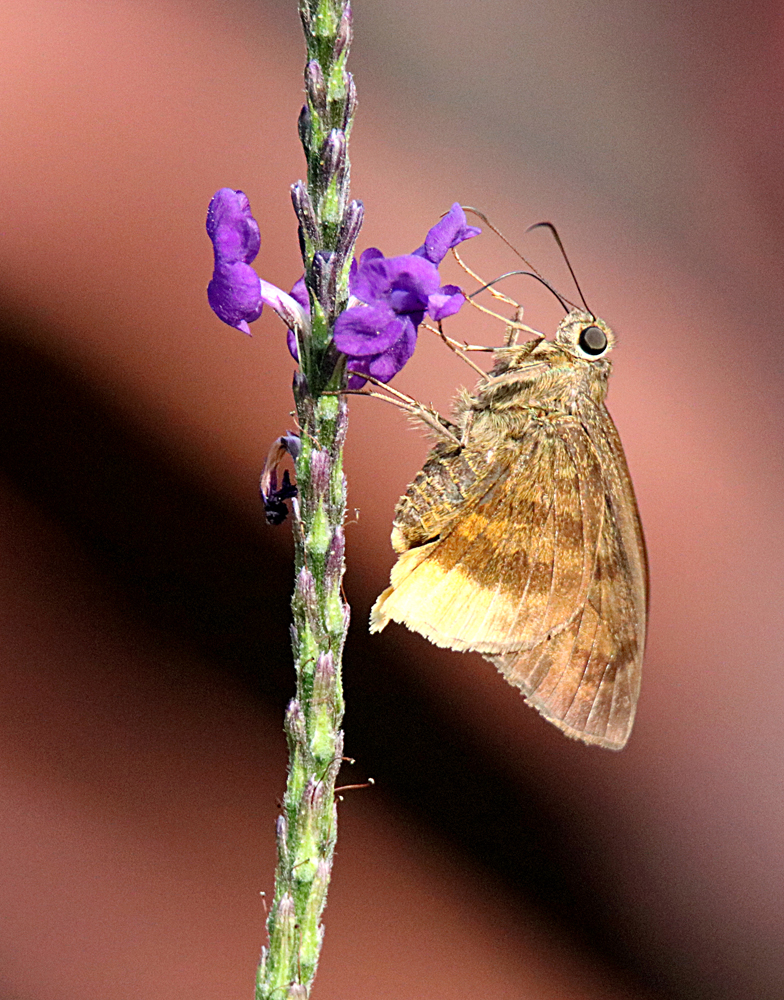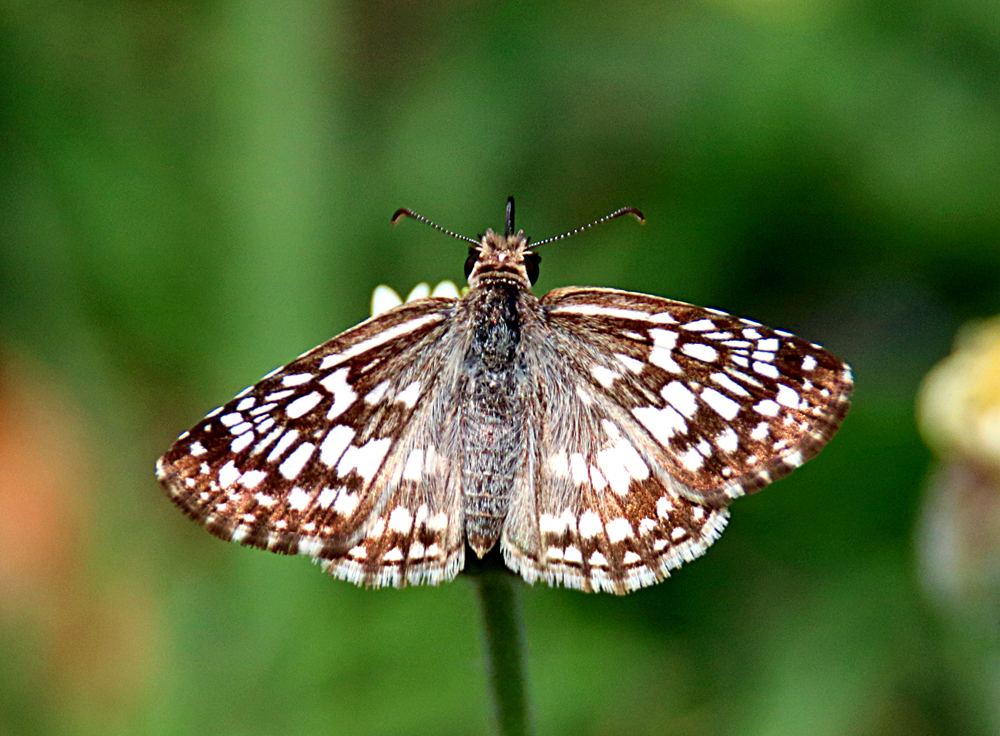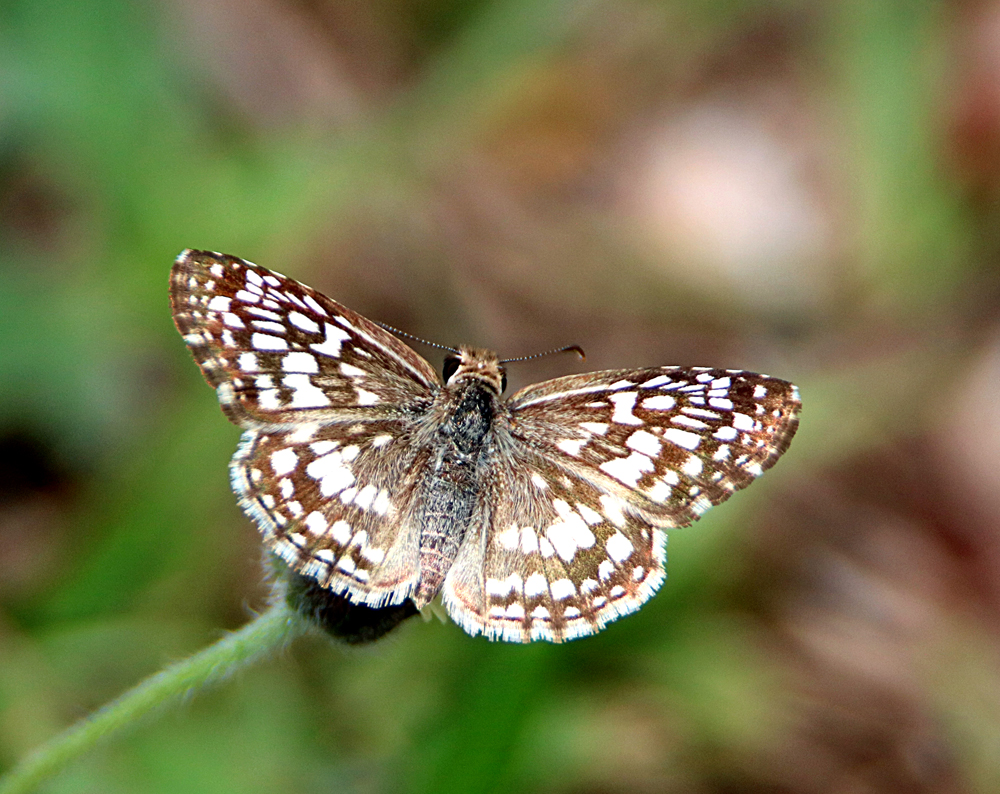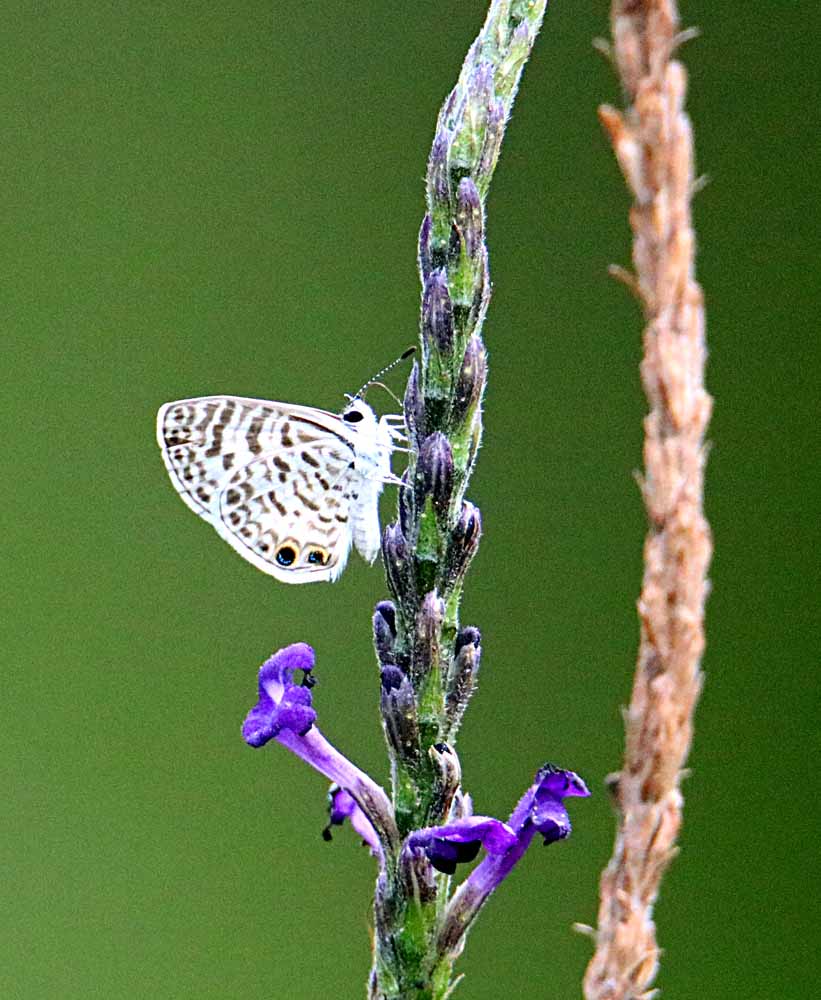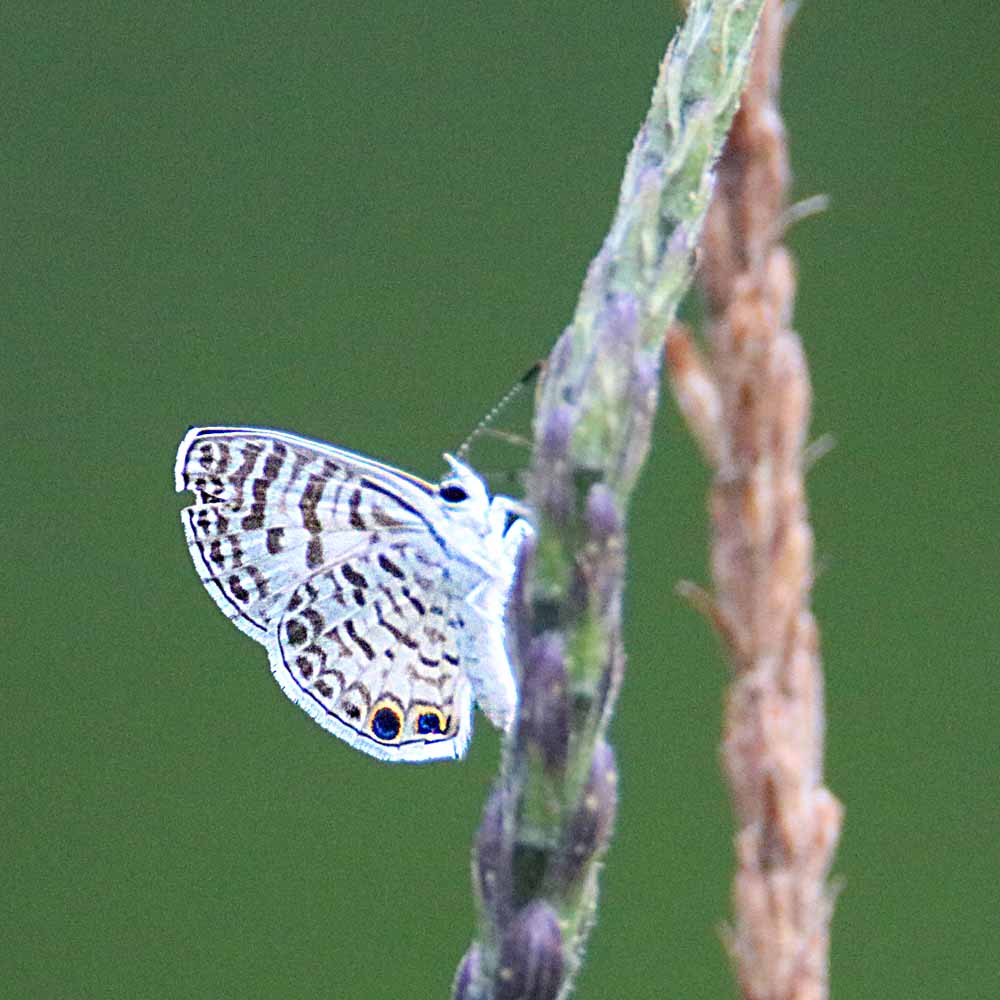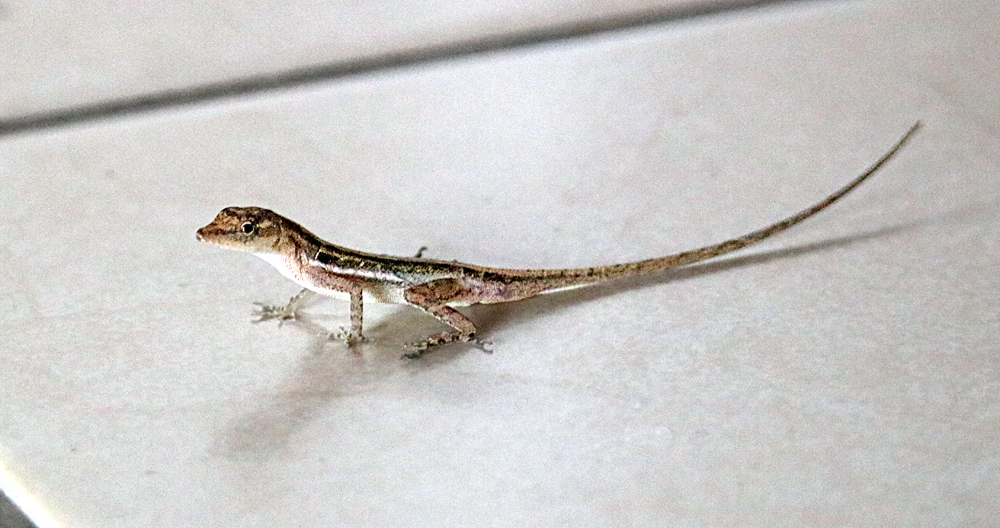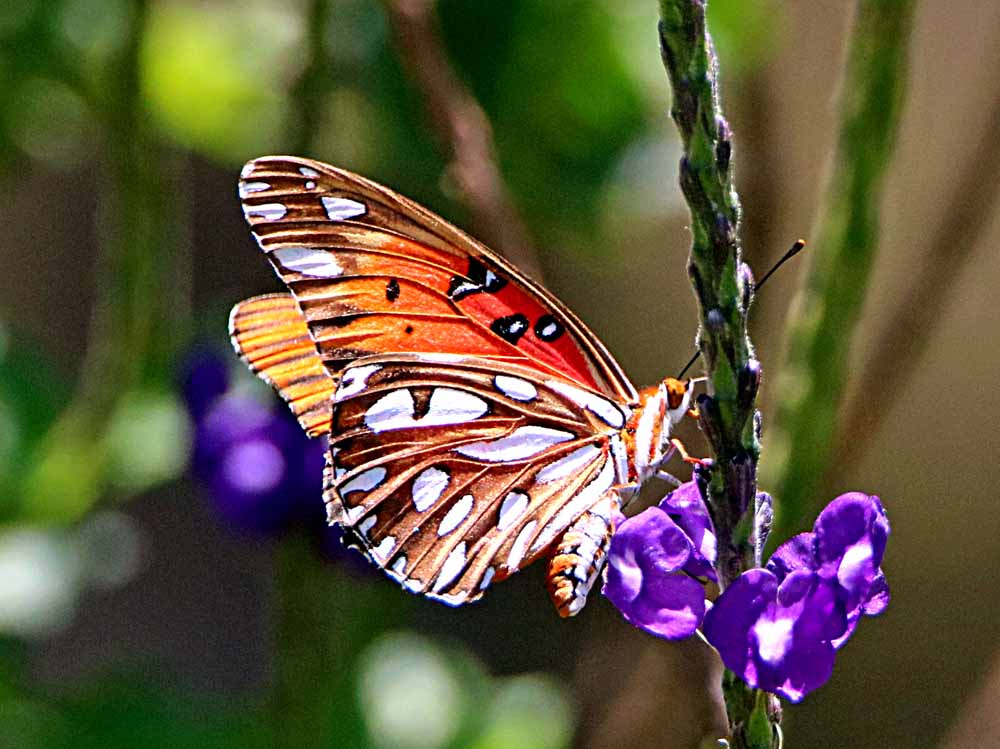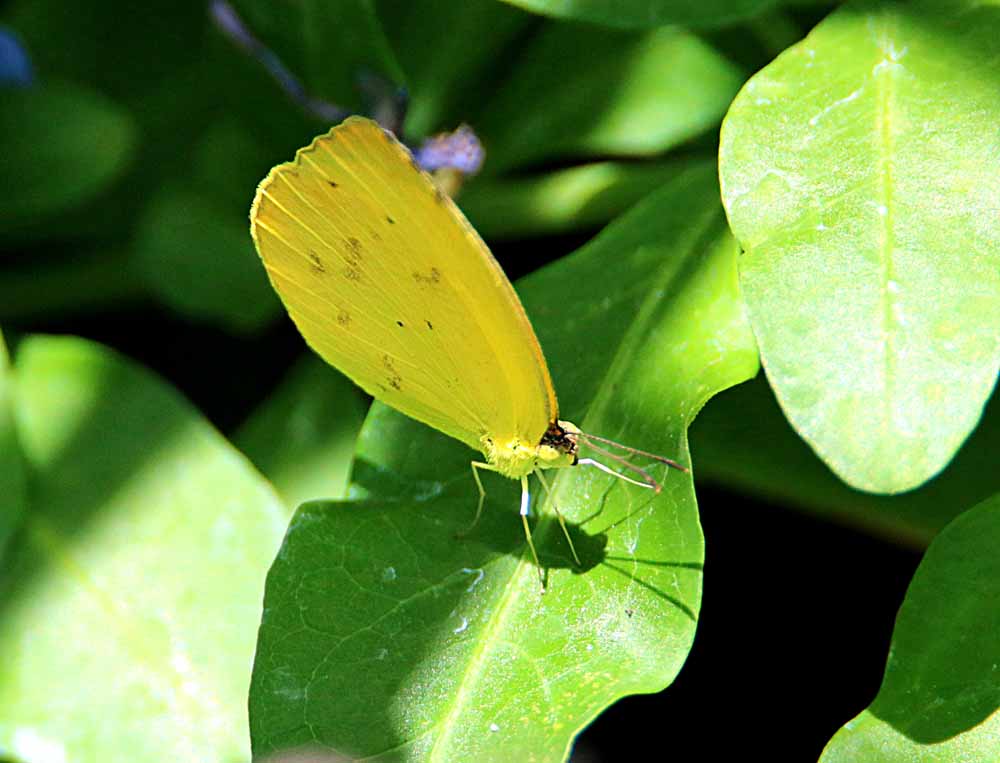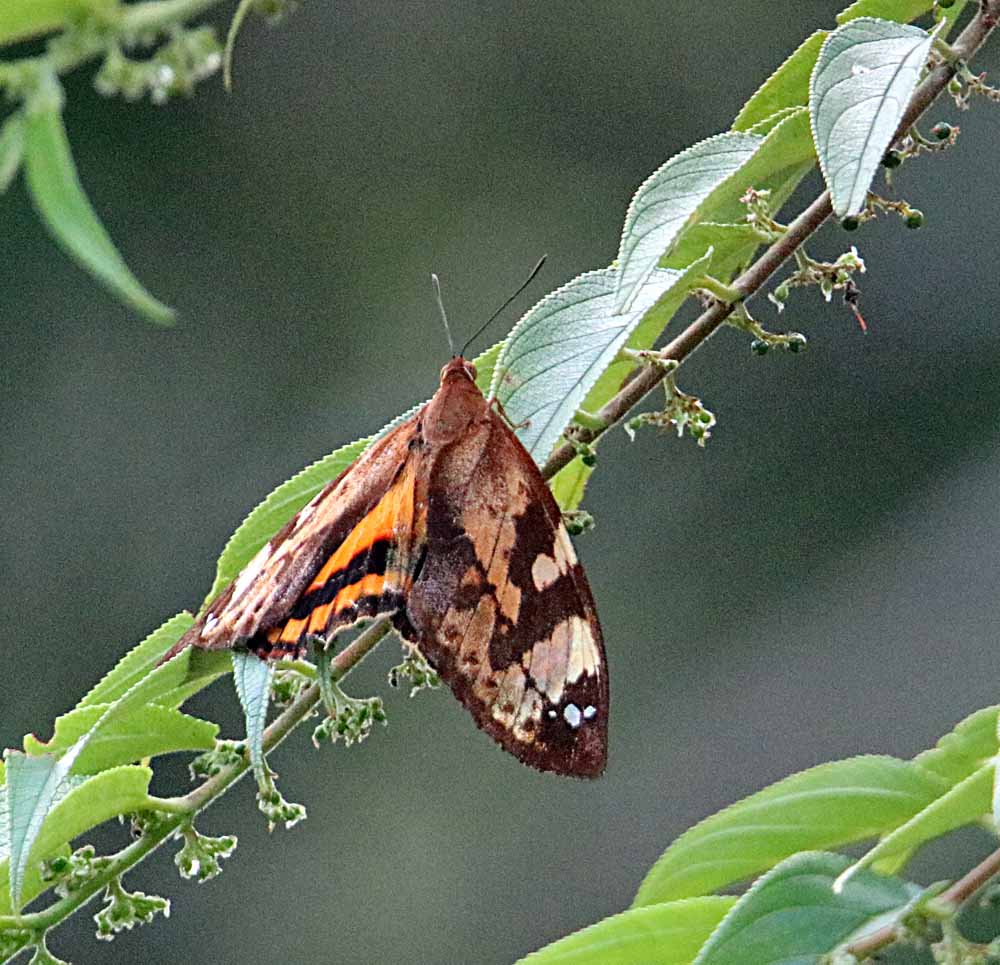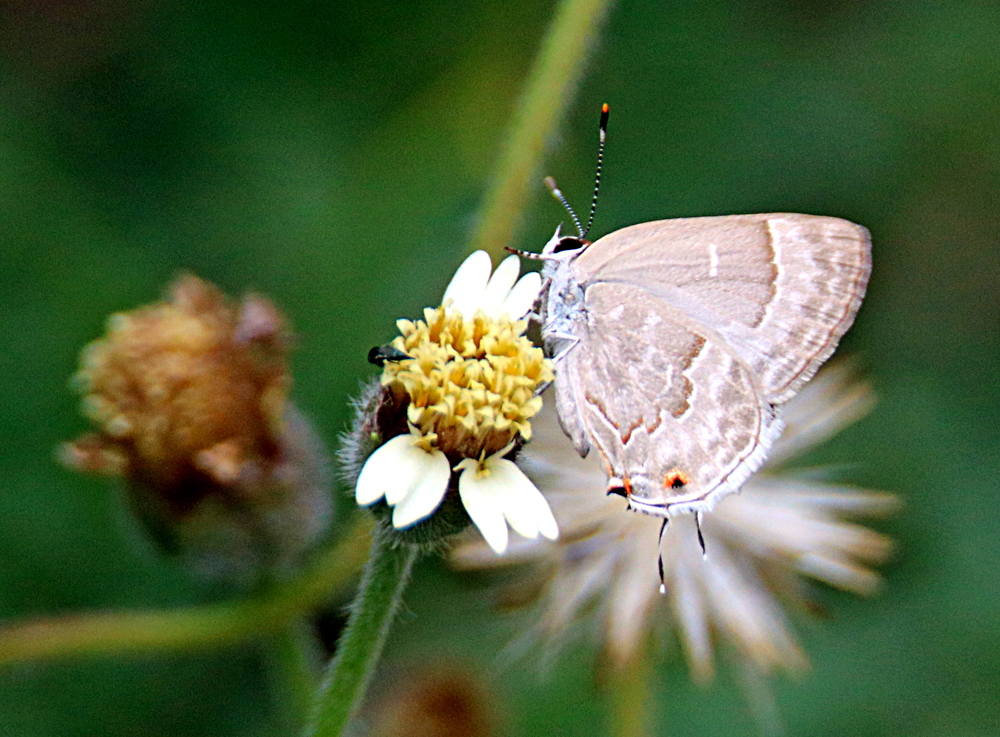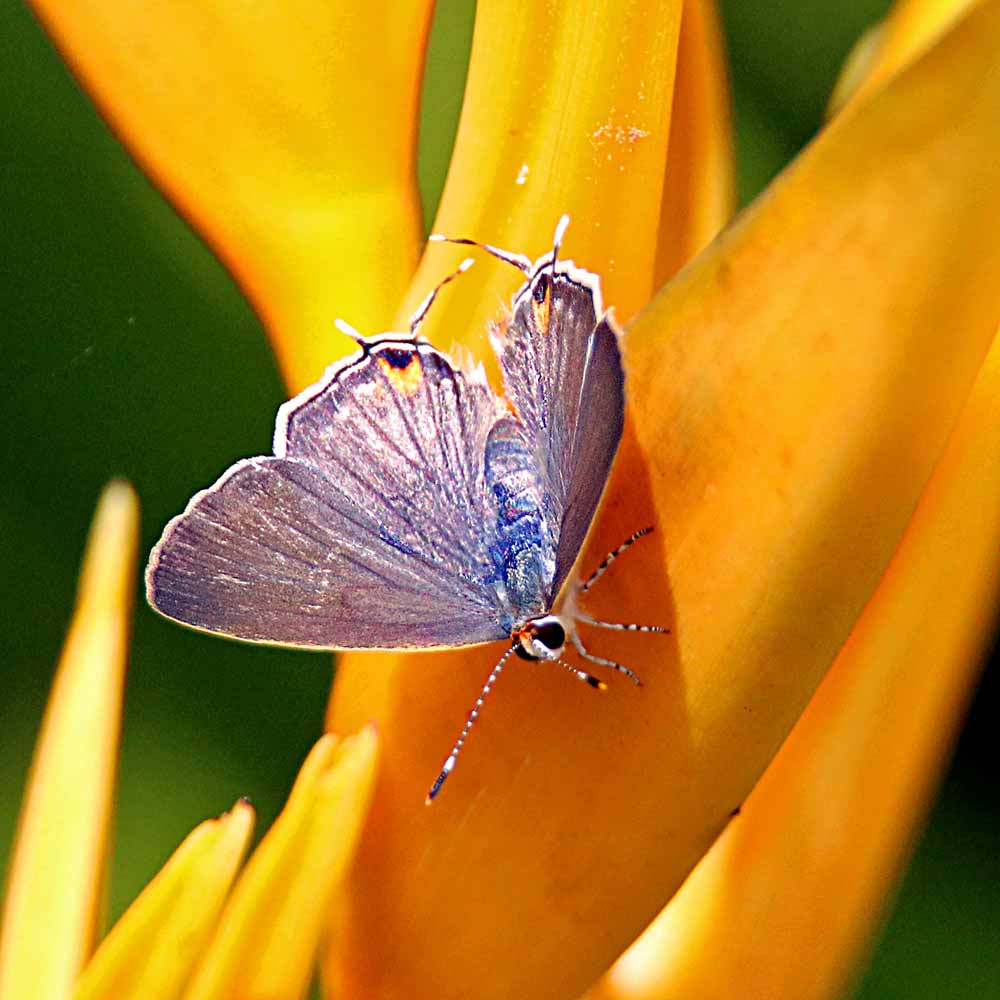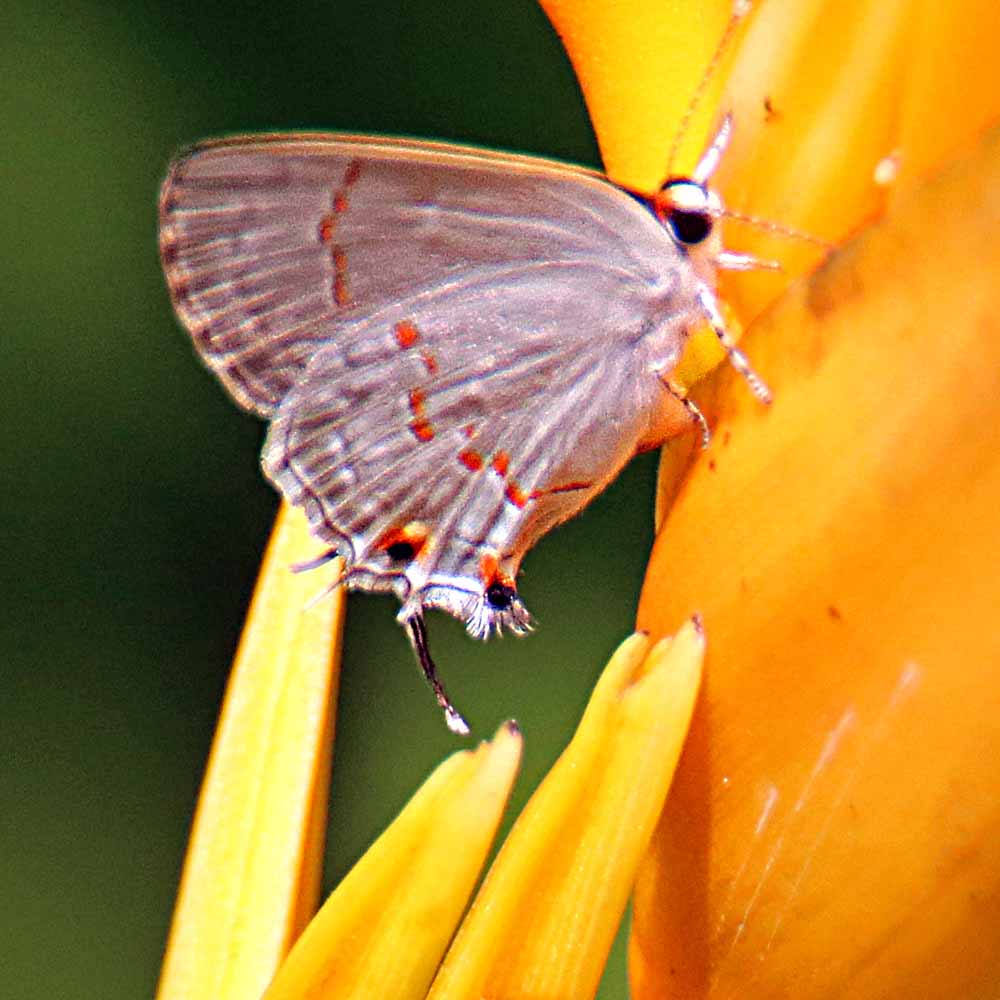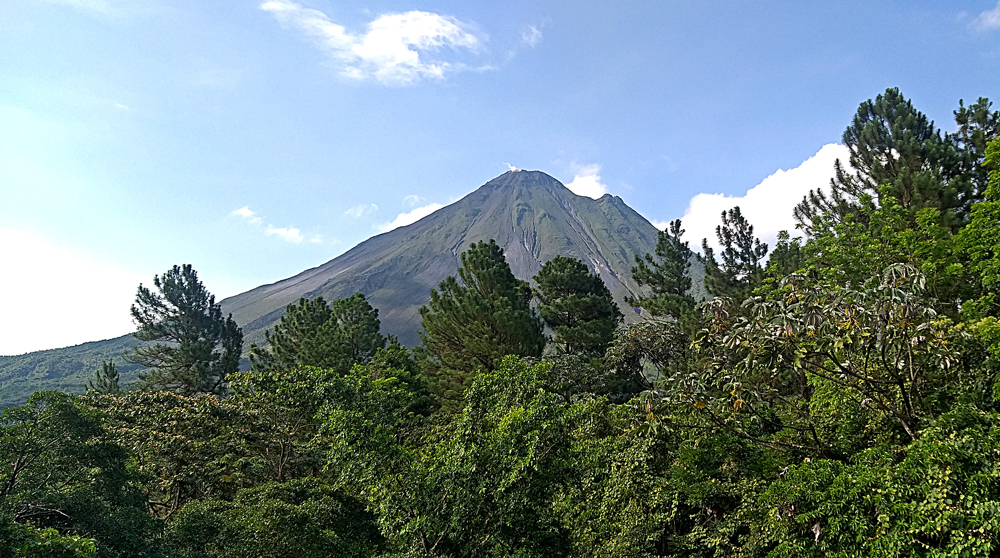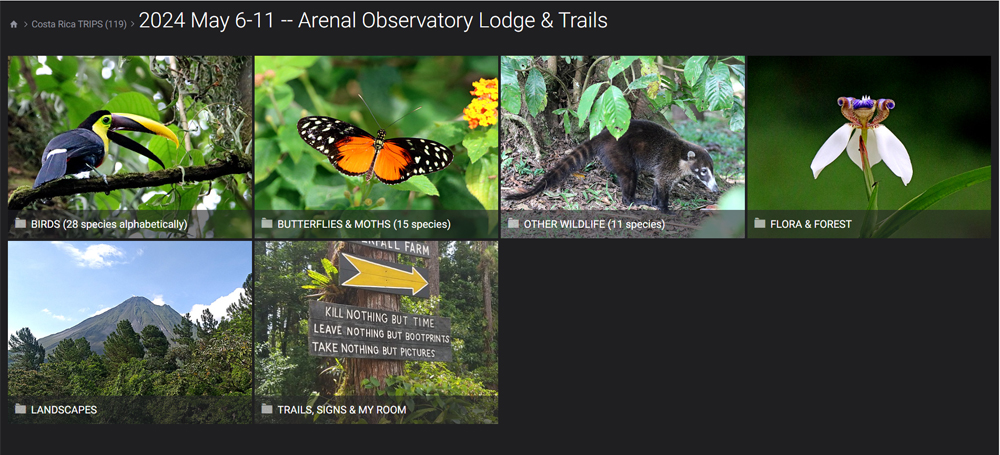The Rounded Metalmark, Calephelis perditalis (my gallery link) is a tiny butterfly that has been a regular in my garden in the past, though this was the first one I’ve photographed since February, as we have entered a new greener rainy season. It is found from Central Texas south through Mexico & Central America. Just one photo here. See more in my above linked gallery or see what the Texas ones look like on butterfliesandmoths. 🙂
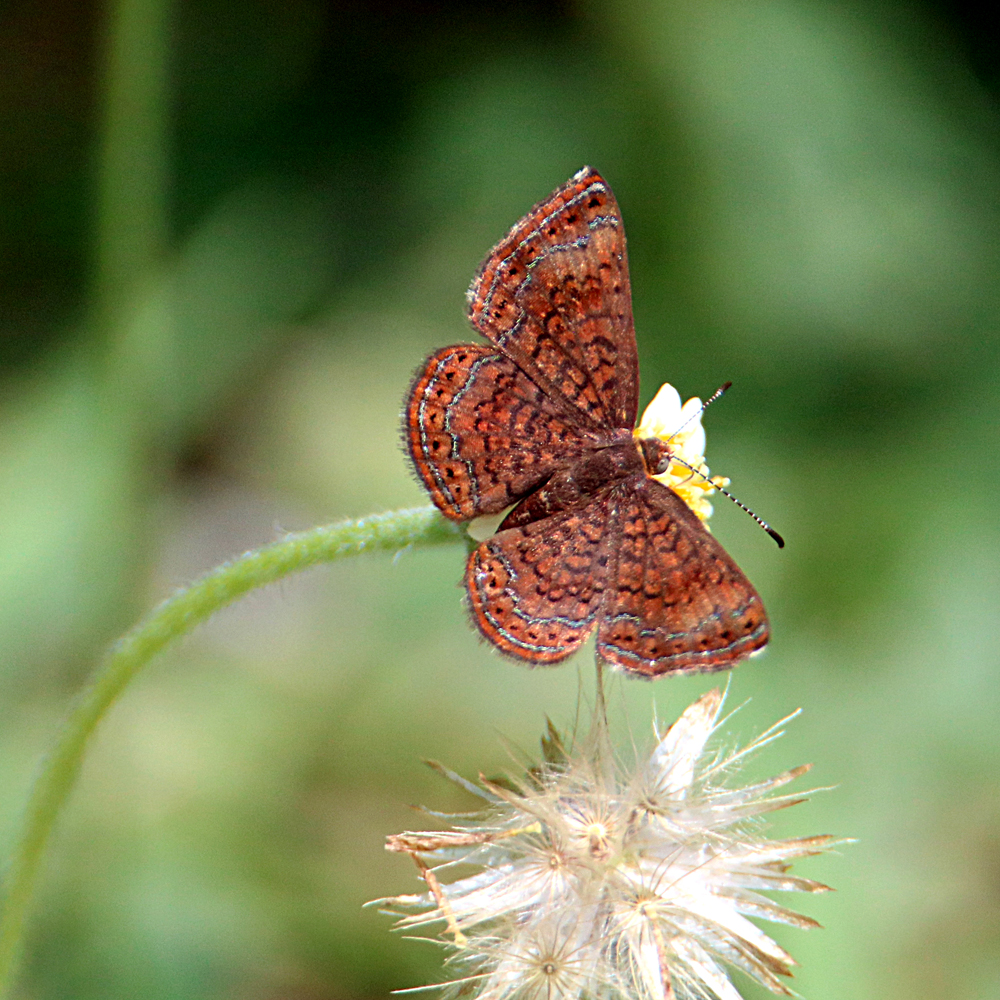
¡Pura Vida!
I’m scheduled to go to Xandari Resort in Alajuela tomorrow for just 2 nights and it has been one of my best butterfly places, so there may be a lot more different ones coming from there soon! 🙂
